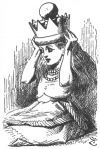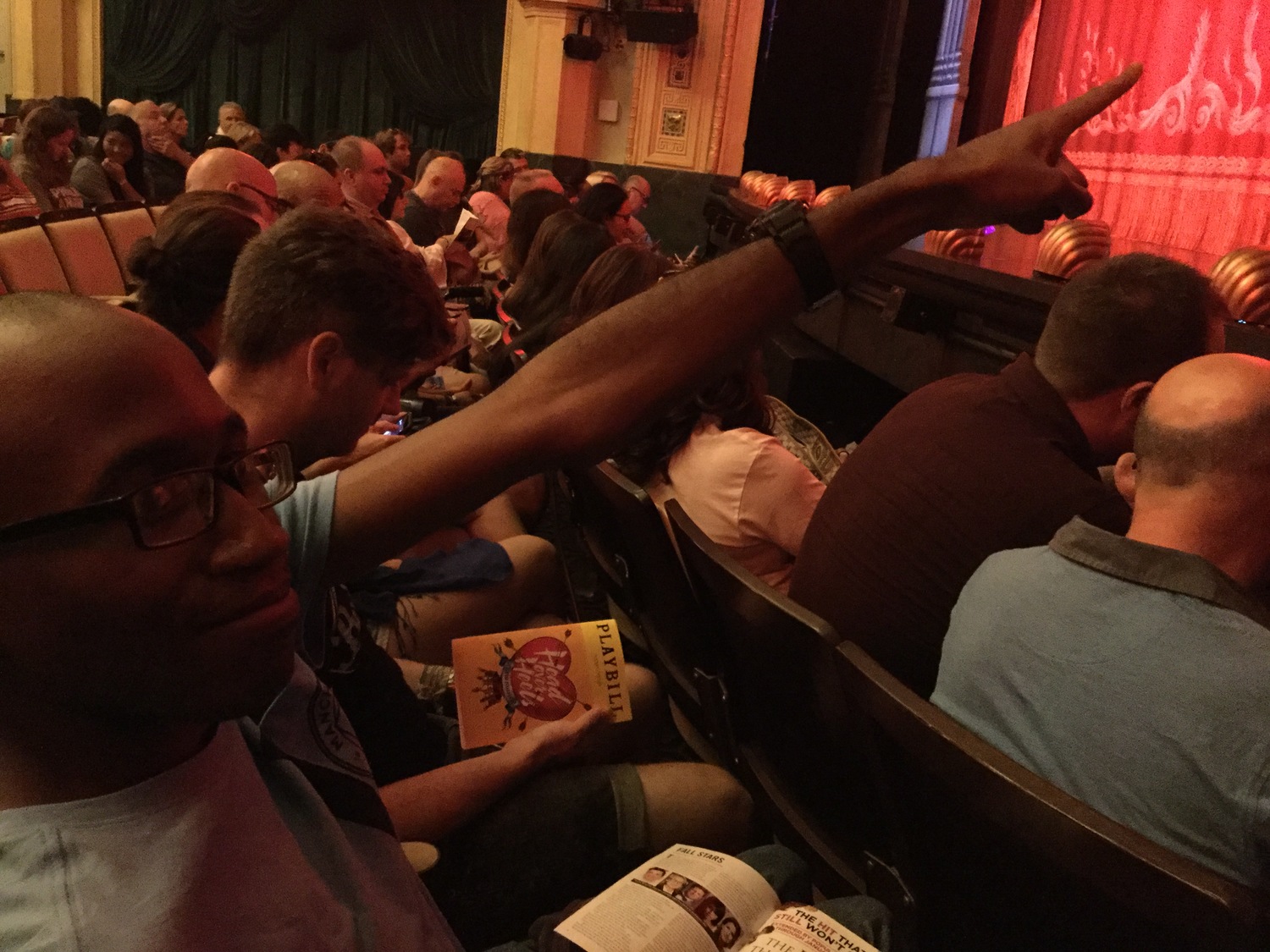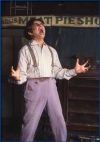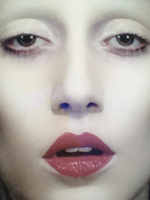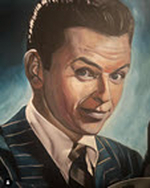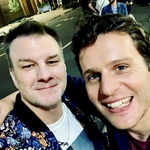Looking back at blackface and its racist history onstage and on-screen
Wayman_Wong
Broadway Legend Joined: 4/22/04
#1Looking back at blackface and its racist history onstage and on-screen
Posted: 11/1/18 at 12:44pm
In the wake of Megyn Kelly's remarks defending blackface, Maurice DuBois (''CBS Sunday Morning'' ) revisits its offensive history going back to minstrel shows. He explores Bert Williams, a celebrated black man who did blackface, and includes Hollywood clips of Al Jolson, Judy Garland and Fred Astaire who did it, too.
http://www.youtube.com/watch?v=pqlD-eZm1ck
#2Looking back at blackface and its racist history onstage and on-screen
Posted: 11/1/18 at 12:56pmOf course, completely fascinating, though, I personally don't think you can have a complete conversation about the legacy of blackface without going into contemporary black pop-culture which doesn't use the makeup but still recycles some of the stereotypes and broad humor rooted in minstrel show performance.
#3Looking back at blackface and its racist history onstage and on-screen
Posted: 11/1/18 at 1:01pm
Mandy Patinkin even did blackface in "The Wild Party" (Lachiusa/Wolfe version) on Broadway if you can remember.
#4Looking back at blackface and its racist history onstage and on-screen
Posted: 11/1/18 at 1:06pm
I think the difference is that Mandy Patinkin's blackface in THE WILD PARTY (directed by black director, George C. Wolfe) along with the choice to include blackface in something like THE SCOTTSBORO BOYS or SHUFFLE ALONG (also directed by Wolfe) were patent decisions to use the practice to make a specific statement about the times the plays were set in.
The focus of the CBS piece seems to be on entertainment that (at a minimum) was simply oblivious to the complicated racial implications black face presented to audiences when it was still deemed socially acceptable to depict it.
#5Looking back at blackface and its racist history onstage and on-screen
Posted: 11/1/18 at 1:13pm
Every time I watch Blackish, I can't help but reflect that Dre's friend Charlie would be an insanely offensive character if written by a white creator on a mostly-white television series, but plays as subversively funny, a "black twitter" type figure, on a mostly-black television show by black creatives. It's a fine line, because there's a certain amount of winking minstrelsy in Charlie.
#6Looking back at blackface and its racist history onstage and on-screen
Posted: 11/1/18 at 1:24pmDarquegk -- Yes, that example is a perfect example of what I mention in my first post. I think it can, on one hand, be viewed as a sort of 'reappropriation' of the culture that was imitated and to various degrees mocked in the practice of minstrel shows, but it nonetheless perpetuates the stereotypes minstrel shows are denounced for.
#7Looking back at blackface and its racist history onstage and on-screen
Posted: 11/1/18 at 2:53pm
As a white man, I know that blackface is offensive and racist. But, I didn't really understand the full reason why.
The musical Shuffle Along really brought to light just how offensive it was during the scene were Billy Porter and Brian Stokes Mitchell were putting on the makeup, the fear, disgust, and sense of hopelessness was very powerful. That scene hit me like a brick.
They also used the "N word" effectively when the white manager character (who was obviously "on their side" ) says something to the effect of "that is good show for you n---" The facial and body expressions of the black actors was so painful. Very powerful.
I think this is why it is important to include in modern day productions if used to educate and remind us of the history we want to forget.
Islander_fan
Broadway Legend Joined: 6/25/14
#8Looking back at blackface and its racist history onstage and on-screen
Posted: 11/1/18 at 3:54pm
OKBroadwayFan said: "As a white man, I know that blackface is offensive and racist. But, I didn't really understand the full reason why.
The musical Shuffle Along really brought to light just how offensive it was during the scene were Billy Porter and Brian Stokes Mitchell were putting on the makeup, the fear, disgust, and sense of hopelessness was very powerful. That scene hit me like a brick.
They also used the "N word" effectively when the white manager character (who was obviously "on their side" ) says something to the effect of "that is good show for you n---" The facialand body expressions of the black actors was so painful. Very powerful.
I think this is why it is important to include in modern day productions if used to educate and remind us of the history we want to forget."
When blackface was common place years ago, it was done with white entertainers, who played the roles as if they were black. It wasn't done as a tribute at all. It was done as entertainment, as comedy for the white community at the expense of the black community. This was during segregation and understandably offended the black community. It's considered offensive now because it brings back the history of white people portraying black people in a way that was/still is offensive. It's offensive because it brings up bad blood as it were, during a time period that wasn't the best.
But, things like this aren't exclusive to black face. There have been other situations in entertainment where there is a character that plays up stereotypes, in an offensive matter to other minority groups. Recently, The Simpsons got rid of the character of Apu, the indian immigrant who owns and operates the local convince store. This was done because many members of the Indian community spoke up about how they found this offensive. There's a major difference between being viewed as PC or overly PC etc and making fun of, or insulting an entire ethnic group.
#9Looking back at blackface and its racist history onstage and on-screen
Posted: 11/1/18 at 4:00pm
Agree---but blackface was also done by black entertainers, thus why it was used in Shuffle Along.
#10Looking back at blackface and its racist history onstage and on-screen
Posted: 11/1/18 at 4:15pmThe removal of Apu has not been officially confirmed- the Simpsons creative staff and producers have responded that "you don't know all the facts" yet, and some are speculating they leaked the rumor themselves to gauge public reaction to removing Apu versus rehabilitating the character (for instance, casting an Indian actor to play the role, which would not rob Hank Azaria of much work at all given the dozens of major characters he plays).
Dollypop
Broadway Legend Joined: 5/15/03
#11Looking back at blackface and its racist history onstage and on-screen
Posted: 11/1/18 at 5:25pm
Only recently the Metropolitan Opera decided to abandon blackface for the tenors who are singing the role of Verdi's OTELLO. I don't agree because so much of the plot revolves around the character's color and Desdemona actually refers to his "sooty bosom".
I showed a video of Zeffirelli's film version of the opera to a group of students in the mostly black
school where I was teaching and we had an intelligent discussion of Placido Domingo's performance in blackface. The consensus was that on stage this would be acceptable because of the vocal demands of the role and the lack of black tenors with the vocal heft the role requires. In a film, the students suggested, lip synching is common and a black actor could easily have his voice dubbed.
#12Looking back at blackface and its racist history onstage and on-screen
Posted: 11/1/18 at 5:47pm
Of all the art forms, opera is ahead of the ball on color blind casting. The quality of the voice and the music are always number one over physical appearance.
#13Looking back at blackface and its racist history onstage and on-screen
Posted: 11/1/18 at 6:36pm
In opera, all anyone really cares about is the music, which leads to all sorts of problems when it comes to theatrical storytelling...
#14Looking back at blackface and its racist history onstage and on-screen
Posted: 11/2/18 at 1:38am
I have told this before because for many years I was a member of the George Mitchell Minstrels. It was a wildly successful TV and stage show early 60s to 70s and then disappeared.
As a male blackface[all the girls were white], actually the colour was Max Factor Negro No2 and it was dark brown, with the round white eyes and pronounced white lips[made your teeth look yellow by contrast].
Toured all Australia and New Zealand and it was only in NZ that when being interviewed was asked how did I feel portraying a person of colour is this fashion. I think this was asked in NZ as there was then and is now such a large visible indigenous population there as opposed to Australia[changed now of course].
I actually didn't have an answer, as not for one moment had I, or any of the other Minstrels I'm sure, had ever given any thought to who we were actually portraying---Minstrel gollywogs were even sold in the foyer.
Sad to say now but I have dressed up as many a character to get a theatrical job so at that time was only happy to be a part of an extremely successful production.
We sold out almost every performance and some weeks did 3 a day. The audience was there for the well known songs, colourful costumes, leggy chorus girls and variety acts.
From that aspect it was a show to take children and grandparents, from pantomime to the Tivoli and everyone went home singing.
In light of the world now what we did belonged in an era[or not], but it happened, it ended and now, very carefully, adjustments need to be made that all races are respected and theatrically, are cast in roles written for them or cast according for talent.
But boy, did I have fun as a singing, dancing Minstrel but never got to sign an autograph as no one knew who I was at the stage door. Maybe the kids expected us to leave in street clothes as a Minstrel ! Though I was invited to a school to talk about being in the show[it really was a big deal] and demonstrated how I went from a white Aussie boy to a member of the Black[dark brown] and White Minstrels.
#15Looking back at blackface and its racist history onstage and on-screen
Posted: 11/2/18 at 12:01pm
Al Jolson, Fred Astaire and Bing Crosby were three of the top entertainers of the first half of the 20th Century. None has ever been regarded as racist. Jolson was a complicated individual, but he always stood up for blacks when he saw injustice.
Jolson was, ironically given the perception today, an early crusader for the rights of African-Americans in show business. For instance, he was instrumental in helping to promote black playwright Garland Anderson’s work, which resulted in the first Broadway production with an all-black cast.
In another instance, Jolson read that songwriters Noble Sissle and Eubie Blake, neither of whom he knew at the time, had been thrown out of a restaurant because of their race. When he heard this, he tracked the pair down and took them out to dinner and reportedly told them, “He’d punch anyone in the nose who tried to kick us out!”
http://www.todayifoundout.com/index.php/2014/10/al-jolson-hero-villian/
Astaire put on blackface in one of the most popular and probably the best Astaire/Rogers film, Swing Time. It was part of a big production number paying tribute to the great tap artist Bill Robinson. No one brought up racism back there in the 30s.
Another example of how difficult it is to apply today's sensibilities to the past. In September of last year Dallas removed a large equestrian statue of Robert E. Lee from a major public park. Lately Lee has come to be regarded as a traitor and a racist slave owner. That statue had been unveiled in 1936 by President Franklin Roosevelt, who also spoke a few words referring to Lee as a great general and a great gentleman. Roosevelt is generally regarded as the greatest President of the 20th Century.
If the country continues in this direction, it will soon run into the very thorny problem of Thomas Jefferson. Jefferson's stock has probably fallen in recent years due to his (accurate) depiction in Hamilton.
But this is the man long-celebrated author of the Declaration of Independence (not that someone else wouldn't have written it if he hadn't). When President Kennedy invited 49 Nobel Prize winners to dine at the White House, he made the famous statement that "I think this is the most extraordinary collection of talent, of human knowledge, that has ever been gathered at the White House - with the possible exception of when Thomas Jefferson dined alone."
Jefferson was one of the largest slave owners in Virginia, took God Knows What liberties with his female slaves, and did not free his slaves on his death, as Washington had done to the extent allowed by law.
Yet he has this great marble monument sitting by the tidal pool near the Mall in Washington.
I'm not offering any conclusions.
Wayman_Wong
Broadway Legend Joined: 4/22/04
#16Looking back at blackface and its racist history onstage and on-screen
Posted: 11/2/18 at 1:20pm
Just because certain things happened in the past, doesn't necessarily justify them for their times or ours. So, yes, we had Founding Fathers who were slave owners. We also had blacks who were brought against their will to America as property . And Native Americans who were slaughtered, so their lands could be taken away from them. There was a time when women weren't allowed to vote; blacks and whites were segregated; interracial and gay relationships were criminalized. Etc., etc. But times change, and so do our sensibilities and our sense of morality. Not everything is black OR white. Life is complicated. It IS possible to celebrate Thomas Jefferson as a great statesman and writer of the Declaration of Independence AND still acknowledge that he owned slaves and fathered children with Sally Hemmings, a slave.
As for blackface, it was once considered one of the most popular forms of entertainment in America, especially during the height of minstrel shows in the 19th century. But by the 1920s or so, it started dying out onstage because of our country's changing attitudes toward race. So, yes, when Fred Astaire did ''Bojangles of Harlem'' in ''Swing Time'' (1936), it was a tribute to Bill Robinson (then and now). But it is possible to watch it and be wowed by what a stunning piece of choreography and cinema it is, AND cringe at the sight of Astaire in blackface. And that practice might've been considered acceptable then, but let's also remember what else was acceptable then: segregation. In the same musical number, Astaire depicts Bojangles as a black man dancing with a giant chorus line of white women. Of course, Robinson wasn't allowed to do that in 1936. No one is calling Astaire a racist, but blackface is. There's a reason why it died: because we, as a society, are now more sensitive to how offensive such depictions are, especially to blacks
Look, we live in a country that's been run by white men. They made the rules, and for many years, if you were a woman, a person of color, or gay, you had little recourse or say in protesting inequality. As the demographics of our country change, and as minorities become the majority, that's going to affect our democracy, and that's scary for many white men who don't want to give up power. We are an imperfect society, but we generally try to make it better for everyone. As Martin Luther King Jr. has been quoted as saying: ''The arc of the moral universe is long, but it bends towards justice.''
Niles Silvers
Stand-by Joined: 9/27/18
#17Looking back at blackface and its racist history onstage and on-screen
Posted: 11/2/18 at 2:31pm
SweetLips22 said: "I have told this before because for many years I was a member of the George Mitchell Minstrels. It was a wildly successful TV and stage show early 60s to 70s and then disappeared.
As a male blackface[all the girls were white], actually the colour was Max Factor Negro No2 and it was dark brown, with the round white eyes and pronounced white lips[made your teeth look yellow by contrast].
Toured all Australia and New Zealand and it was only in NZ that when being interviewed was asked how did I feel portraying a person of colour is this fashion. I think this was asked in NZ as there was then and is now such a large visible indigenous population there as opposed to Australia[changed now of course].
I actually didn't have an answer, as not for one moment had I, or any of the other Minstrels I'm sure, had ever given any thought to who we were actually portraying---Minstrel gollywogs were even sold in the foyer.
Sad to say now but I have dressed up as many a character to get a theatrical job so at that time was only happy to be a part of an extremely successful production.
We sold out almost every performance and some weeks did 3 a day. The audience was there for the well known songs, colourful costumes, leggy chorus girls and variety acts.
From that aspect it was a show to take children and grandparents, from pantomime to the Tivoli and everyone went home singing.
In light of the world now what we did belonged in an era[or not], but it happened, it ended and now, very carefully, adjustments need to be made that all races are respected and theatrically, are cast in roles written for them or cast according for talent.
But boy, did I have fun as a singing, dancing Minstrel but never got to sign an autograph as no one knew who I was at the stage door. Maybe the kids expected us to leave in street clothes as a Minstrel ! Though I was invited to a school to talk about being in the show[it really was a big deal] and demonstrated how I went from a white Aussie boy to a member of the Black[dark brown] and White Minstrels."
wtf?
#18Looking back at blackface and its racist history onstage and on-screen
Posted: 11/2/18 at 2:34pmNate, I had the same reaction.
#19Looking back at blackface and its racist history onstage and on-screen
Posted: 11/2/18 at 2:38pm
Me too. For a second there I thought I was in the Upside Down.
ScottyDoesn'tKnow2
Broadway Legend Joined: 1/22/14
#20Looking back at blackface and its racist history onstage and on-screen
Posted: 11/2/18 at 3:44pm
I actually don't see SweetLipps22 post in a bad light. It seemed to be very thoughtful about his own experience being a minstrel performer, and even had an anecdote about being confronted with that question for the first time in New Zealand and recognizing why they may have been more sensitive to how harmful that sort of portrayal is. I don't think SweetLipps22 was defending the practice at all and instead is making us confront the uncomfortable truth that many people even as far into the 1960s and 70s really were enjoying those types of performances. Of course they enjoyed it. If people back then didn't like it then nobody would have done it. Thank goodness times were changing and more POC were speaking out AND being heard regarding these things. The whole it being fun thing, I think SweetLipps22 wasn't saying they missed it or they cry for a time where he was allowed to do it, but that as a performer, the truth was that he did enjoy the experience even though he recognizes it is problematic and racist and would most likely not do it again. I read into his post to come up with that conclusion, but given the rest of the post, that's how it read to me.
Of course, I could be completely off-base and I respect other people's take on it if they read it differently.
#21Looking back at blackface and its racist history onstage and on-screen
Posted: 11/2/18 at 4:46pm
Thanks Scotty, your reading of my post was spot on and appreciate you 'getting' what that time meant to me.
#22Looking back at blackface and its racist history onstage and on-screen
Posted: 11/2/18 at 4:55pm
To be clear, I don't see SweetLips22 in a bad light. At all.
But...that's a really f-ed up story viewed through today's lens. Even though it was in the past, the 60s/70s was not that long ago. And, of course, different parts of the world have different performance traditions. But yeah...that's fascinatingly f-ed up. I understand the complicated feelings one might have if that was a gig you had in your youth. It's a really interesting story and, as f-ed up as it is, I'm glad(?) to have read it.
This is NOT the same, but I was thinking the other day about Anything Goes. I played Billy in high school and we had to do that final scene where Billy, Reno and Moonface pretend to be Chinese people and try to get Hope and Evelyn out of getting married. I cringe today to think I did that on a stage anywhere. I absolutely cringe.
#23Looking back at blackface and its racist history onstage and on-screen
Posted: 11/2/18 at 10:47pm
My goodness--the more I think about it now.
To start every show--'Ladies and Gentlemen....It's The Black and White Minstrel Show'---always a big cheer and the male chorus starting the show with 'Saints go marching in'.
George Mitchell, a white Englishman who originated the show and 'sound' that we created occasionally flew out and would conduct us on stage--a real treat for us.
but the part I laugh about, before every medley, it was always, 3 rim shots and we were in !!
We had studio recorded all the vocals so we could sing over the tape. We had at least 8 costume changes and every medley had a theme, be it roaring 20s, pirates or romantic waltzes and we had to dance with each change. The reason for the tape was to maintain that George Mitchell 'sound' as we couldn't do it while dancing.
Of course the tape, yes TAPE, sometimes broke, so thank goodness we had an orchestra-we recorded the vocals with piano bass and drums-so they played louder and we sang louder when we could until they got the 2nd tape lined up to go.
I know I digress from the main topic and making this all about 'me', but it's just to share my experience working for many years as a Minstrel without any other thought except performing.
#24Looking back at blackface and its racist history onstage and on-screen
Posted: 11/3/18 at 1:48am
Nice post, Wayman. It's just that Roosevelt and Kennedy are such liberal icons of the 20th Century. Kennedy called Jefferson a great man. Is there any way that Jefferson could be excused for being a slave owner, and such a major one? That he could be praised for his good side and have the bad side overlooked? Did Roosevelt give a little praise to Lee because of a sincere belief or because he wanted to carry Texas in the next election? If you look too closely at people they will always disappoint you.
You are right that white men are not comfortable about giving up power to minorities. It was white men, after all, that settled the country and fought for its existence. It was the white men not of my generation, but of my father's, that were put to the test in 1941, The First World War was a ludicrous and barbaric display of everything foolish and stupid about the white men who controlled Europe at the beginning of the century. The Vietnam War was well-meant to save the world from the Russian threat, but the notion of losing the cold war by means of the domino theory in retrospect seems almost nutty and not worth the death of 50,000 men and the physical and mental maiming of 50,000 more. An excuse might be that the white men who had fought in Europe were genuinely afraid of cruel Joe Stalin and his absolute disregard of any moral restraints.
But the Nazis in Europe and the Japanese in China were pure evil and had to be stopped. The white men, not the white women, suffered horribly. And the white men wonder if those in charge now would have faced that responsibility or looked the other way for as long as possible.
Niles Silvers
Stand-by Joined: 9/27/18
#25Looking back at blackface and its racist history onstage and on-screen
Posted: 11/3/18 at 3:05am
SweetLips22 said: "My goodness--the more I think about it now.
To start every show--'Ladies and Gentlemen....It's The Black and White Minstrel Show'---always a big cheer and the male chorus starting the show with 'Saints go marching in'.
George Mitchell, a white Englishman who originated the show and 'sound' that we created occasionally flew out and would conduct us on stage--a real treat for us.
but the part I laugh about, before every medley, it was always, 3 rim shots and we were in !!
We had studio recorded all the vocals so we could sing over the tape. We had at least 8 costume changes and every medley had a theme, be it roaring 20s, pirates or romantic waltzes and we had to dance with each change. The reason for the tape was to maintain that George Mitchell 'sound' as we couldn't do it while dancing.
Of course the tape, yes TAPE, sometimes broke, so thank goodness we had an orchestra-we recorded the vocals with piano bass and drums-so they played louder and we sang louder when we could until they got the 2nd tape lined up to go.
I know I digress from the main topic and making this all about 'me', but it's just to share my experience working for many years as a Minstrel without any other thought except performing."
wtf?

